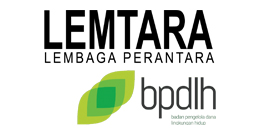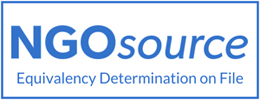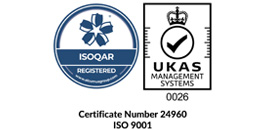Public Health
Public health has an important role in improving the quality of human resources, poverty alleviation and economic development. Human Development Index put the health as one of the main components in addition to education and income measurement.
General condition of Indonesian health is influenced by environmental factors, behavior, and health services. While the health service consists of several components, among others, the availability and quality of health care facilities, medicines and medical supplies, health personnel, financing and health management. Primary health care facilities, Puskesmas, which is reinforced by Puskesmas Pembantu and the mobile Puskesmas, has been established in almost all parts of Indonesia, but equity and affordability of health care is still an obstacle.
Under uneven conditions of service affordability and needs behavior changing of the society, the country has recognized the important role of civil society organizations, especially for a response to an infectious disease that still relatively high prevalence in the community, such as tuberculosis, malaria and HIV/AIDS.
Penabulu believes that the improvement of the budgeting system of health care, improved governance of health services, in addition to the strengthening of civil society organizations to reach key populations community and promote the effectiveness of changes in people’s behavior become an important key to improve the quality of long-term health of Indonesian society.
The program mainly works to improve the quality, capacity and capability of civil society organizations working on issues of public health, both at the institutional and management aspects of the organization’s ability to empower and mobilize communities of key populations; promoting the development of an integrated system of planning and budgeting at the district level, and improvement of the mechanism of implementation of health support programs themselves.
-
- Capacity Building to Strengthen the Financial Management Systems and Capabilities of a USAID-Funded CEPAT NGO
- Financial Management Capacity Building for HCPI Partners
- Professional Financial Management Consultancy and Technical Assistance for USAID-Funded SIAP NGO Partner
- Technical Service Provider for Building the Capacity of HIV/AIDS Civil Society Organizations on Organizational Performance and Financial Management
- Delivering Expanded Resources for AIDS Programming
- Financial Management Technical Assistance for PR ‘Aisyiyah
- Strengthening Public Financial Management Capacity to Improve Public Service Delivery at Frontline Service
- Monitoring and Advocacy for Improved Public Service Delivery In Health Sector
- Strengthening Public Financial Management Capacity to Improve Public Service Delivery at Frontline Services
- Sekolah Hijau JAPFA – Integration of Waste Management and Environmental Improvement Solutions in Schools
- Voice for Change Partnership (V4CP) – Study on The Private Sector’s Perception and Engagement Towards WASH (Water, Sanitation and Hygiene)
- “JAPFA Green School” – Integration of Waste Management and Environmental Improvement Solutions in Schools – Phase 2
- Increased Resilience Through Climate Smart/Disaster Proof Nutrition Sensitive Value Chains in Central Sulawesi.
- Scoping Study on Tobacco Economic Ecosystem in Indonesia
- Development of Community Involvement Report on Budget Advocacy
- Community PR for TB Elimination in Indonesia 2021-2023
- Implementation of Tuberculosis Revised District Public Private Mix (DPPM) Strategy in Medan and Denpasar
- Advancing Community Consortium Efforts to Leverage and Advocate TB Elimination (ACCELERATE)
- Partner Institutional Capacity Building
- Advancing Community Consortium Efforts to Leverage and Advocate TB Elimination (ACCELERATE) Phase 2
- Together Towards Elimination and Free from TB_ USAID BEBAS-TB YEAR 1 “Community Participation In Implementing Development Activities”
- Integrating the primary health care network through improving service quality, enhancing enabling policies and strengthening the institutional framework in the provinces of North Sumatra and Banten (INTEGRASI)
- Bersama Menuju Eliminasi dan Bebas dari TB_ USAID BEBAS-TB year 2 “Community Participation In Implementing Development Activities”
- DKI Jakarta
- District of Kediri, District of Malang, Malang City, Surabaya City, East Java
- District of Purwokerto, Central Java
- District of Cirebon, District of Indramayu, West Java
- Medan City, North Sumatra
- Batam City and Tanjung Pinang City, Riau Islands
- Denpasar City, Bali
- District of Lombok Timur, NTB
- District of Jayapura, District of Jayawijaya, District of Mimika, Papua
- District of Sorong dan District of Manokwari, West Papua
- Semarang, Central Java
- Surabaya, East Java
- Bandung, West Java
- East Sorong District, West Papua
- Abepura District, Papua
- Palembang, South Sumatera
- Bandar Lampung, Lampung
- Makassar, South Sulawesi
- Kendari, South-East Sulawesi
- Ciledug, South Tangerang
- East Java
- Nusa Tenggara Barat
- Tangerang Selatan, Provinsi Banten
- District of Pacitan, East Java
- District of Bantaeng, South Sulawesi
- Cikande and Cikupa, Tangerang
- West Sumatera and Lampung
- Cikupa and Cikande
- Central Sulawesi
- Malang
- 190 Districts/Cities in 30 Provinces in Indonesia
- Modules and guides empowerment and community mobilization to reach and strengthen the key populations in order to prevention of HIV/AIDS in Indonesia.
- Environmental Mitigation and Manual Monitoring
- Policy documents and procedures which ensure that the factors and environmental values are integrated into the decision-making process and the implementation of the program on the issue of HIV/AIDS.
- Pitamerah | The People Behind The Number
- Service unit of Penabulu Alliance that focusing to improve the quality, capacity and capability of civil society organizations that working on issues of public health and public health services unit.
- Fulcra | Nonprofits Financial Consultant
- Service unit of Penabulu Alliance that focusing to improve financial governance of nonprofit organizations and other organizations that serve the public interest.
- Lingkar LSM | Stimulating Civil Society Empowerment
- Service unit of Penabulu Alliance for strengthening the capacity of civil society organizations in Indonesia especially on governance aspects of the institutional management and program management (planning-monitoring-evaluation).
- Performa | Nonprofit Human Resources Management
- Service unit of Penabulu Alliancefor the management and the strengthening of human resource management for nonprofit organizations in Indonesia.
USAID Community Empowerment of People Against Tuberculosis Program.
USAID Scaling-Up for Most-at-risk PopulationProgram.
- USAID – DERAP
USAID Delivering Expanded Resources for AIDS Programming Program.
AUSAID HIV Cooperation Programme for Indonesia Program.
Dutch donor institution that focus on the structural improvement of health conditions of marginalized communities in Africa and Asia through community empowerment, involving government and private sector to ensure that everyone can use essential services, learn healthy behaviors and enjoy sexual rights and reproductive.
- JKM (Network of Welfare/Public Health)
A civil society resources organization that located in Medan, working on community health projects across the province of North Sumatra.
- PPH Unika Atmajaya (Unika AtmajayaHIV/AIDS Research Center)
A research center that conducts research focuses on the social and behavioral aspects of HIV and AIDS issues in Indonesia, especially in populations of drug users, street children, and children affected by HIV and AIDS.
A non-profit organization that focusing on advocacy, campaigns and the strengthening of children affected by and living with HIV/AIDS.
- Doctor Share (Doctor Cares Foundation)
A non-profit humanitarian organization that focusing on health care and humanitarian assistance by providing access to holistically, independently, and impartially medical assistance, to those who need it the most, those who are considered poor and cannot afford for it.
Aisyiyah is an institution formed by Muhammadiyah with the tagline “Muslim Women’s Movement to Brighten the Nation”. Aisyiyah been getting funds from GlobalFund for more than 10 years through TB Care Aisyiyah.
KNCV has been working for more than 110 years for reducing tuberculosis in the Netherlands and the world.
- KOMPAK – Abt JTA (Community Collaboration and Services for Welfare)
KOMPAK is a facility funded by the Australian Government to support a number of Government of Indonesia (GoI) programs in achieving the RPJMN 2015-2019 targets of reducing poverty by improving the quality and coverage of basic services and by increasing off-farm economic opportunities for the poor.
- USAID (United States Agency for International Development)
USAID leads international development and humanitarian efforts to save lives, reduce poverty, strengthen democratic governance and help people progress beyond assistance.
- MSI (Management System International)
We are always driving toward results. For the last 30 years, MSI has helped to deliver development results across the developing world. We care deeply about the global issues we tackle. Our projects drive governments and organizations toward better results, helping the people they serve to live better lives.
PT Japfa Comfeed Indonesia, Tbk. is one of Indonesia’s largest agri-food Companies that has been producing vital animal protein staples for the nation since 1975.
The first CARE package arrived in Le Havre, France, in May 1946, the first of a wave of responses to millions in need of food and relief supplies at the end of World War II. Known then as the Cooperative for American Remittances to Europe, it consisted of 22 American charities of civic, religious, cooperative and labour backgrounds. CARE took possession of 2.8 million USA army surplus packages in 1946, each containing enough food to feed ten people for one day, or one person for ten days. The packages contained staples such as butter, dried milk, canned meat, and sometimes even chocolate and chewing gum.
More than seven decades later and counting, CARE has evolved to become one of the largest poverty-fighting organizations in the world, providing relief to people hit by disasters and emergencies, and contributing to economic empowerment that strengthens livelihoods over the long term, starting with women and girls who are often marginalized and among the world’s poorest. From communities facing severe drought in Ethiopia to families torn apart by wars in Syria and Yemen, these are just a few of CARE’s activities in more than 90 countries.
The Foundation was established in 2017 and is led by Dr. Derek Yach, a global health expert and anti-smoking advocate for more than 30 years. The organization was founded on the belief that we need to explore, test, and embrace new ideas if we want to accelerate progress toward a smoke-free world.
More than a billion people still smoke worldwide, and more than seven million smokers die each year. We are committed to helping smokers with their addiction to cigarettes and other forms of tobacco. To this end, we collaborate with other nonprofit, advocacy, and government organizations to advance smoking cessation and harm reduction science. We also support the development of alternative products and methods that may reduce users’ current health risks and help them to stop smoking entirely.
We know most smokers want to quit, but many struggle, with typical success rates lower than 10 percent. We also know that the number of smokers worldwide is virtually the same as it was 15 years ago, despite well-coordinated global tobacco control policies and educational efforts to prevent smoking. We need new and better solutions, applied nimbly and rapidly, to combat this global health epidemic.
The Foundation for a Smoke-Free World (FSFW) is an independent, nonprofit organization committed to reducing deaths and diseases caused by smoking. Our mission is to end smoking in this generation. To achieve this goal on a truly global scale, we strive to identify and address the unique needs of the developing world as they relate to tobacco cessation and harm reduction.
The Global Fund is a partnership designed to accelerate the end of AIDS, tuberculosis and malaria as epidemics. As an international organization, the Global Fund mobilizes and invests more than USD 4 billion a year to support programs run by local experts in more than 100 countries. In partnership with governments, civil society, technical agencies, the private sector and people affected by the diseases, we are challenging barriers and embracing innovation.
The Global Fund to Fight AIDS, Tuberculosis and Malaria was created in 2002 to raise, manage and invest the world’s money to respond to three of the deadliest infectious diseases the world has ever known. The mission of the Global Fund is to invest the world’s money to defeat these three diseases.
The idea for the Global Fund arose from a wellspring of grass-roots political advocacy coming face-to-face with the imperatives of global leadership. AIDS, TB and malaria are all preventable and treatable – but solving this problem requires the commitment not only of world leaders and decision-makers but also of those working on the ground to help the men, women and children living with these diseases.
USAID leads international development and humanitarian efforts to save lives, reduce poverty, strengthen democratic governance and help people progress beyond assistance.
The Stop TB Partnership brings together expertise from a broad spectrum of country, regional, and global partners in our shared mission to revolutionize the TB space and end TB by 2030.
Founded in 2001, the Stop TB Partnership is a United Nations hosted organization that takes bold and smart risks to serve the needs and amplify the voices of the people, communities, and countries affected by TB.
We work to advocate, catalyze, and facilitate sustained coordination and collaboration among partners; to support the development, replication, and scale-up of innovative approaches and tools; and to facilitate equitable access to TB diagnostics, treatment, and care for all in need.
We believe that our comprehensive range of strategic and technical expertise and our willingness to push boundaries are crucial factors in reaching the targets set forth by the TB community at large.
UNAIDS is leading the global effort to end AIDS as a public health threat by 2030 as part of the Sustainable Development Goals.
Since the first cases of HIV were reported more than 35 years ago, 78 million people have become infected with HIV and 35 million have died from AIDS-related illnesses. Since it started operations in 1996, UNAIDS has led and inspired global, regional, national and local leadership, innovation and partnership to ultimately consign HIV to history.
UNAIDS is a problem-solver. It places people living with HIV and people affected by the virus at the decision-making table and at the centre of designing, delivering and monitoring the AIDS response. It charts paths for countries and communities to get on the Fast-Track to ending AIDS and is a bold advocate for addressing the legal and policy barriers to the AIDS response.
UNAIDS provides the strategic direction, advocacy, coordination and technical support needed to catalyse and connect leadership from governments, the private sector and communities to deliver life-saving HIV services. Without UNAIDS, there would be no strategic vision for the AIDS response.




